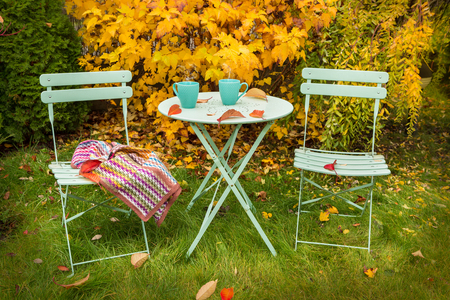1. Introduction to British Composting Traditions
Composting holds a revered place in the heart of British gardening culture, woven deeply into the country’s horticultural history. For generations, gardeners across the UK have relied on composting as a cornerstone of sustainable garden management, making use of local resources and reducing waste. The practice is far more than just a method for dealing with garden clippings and kitchen scraps; it is both a reflection of the British respect for nature and an enduring tradition that supports the health of ornamental borders, vegetable plots, and allotments alike. By converting organic waste into nutrient-rich humus, composting not only enriches soil but also strengthens the unique character of British gardens. Understanding these traditions provides essential context for balancing time-honoured methods with new innovations in composting—a balance that is increasingly relevant as environmental awareness grows and gardening practices continue to evolve throughout the UK.
2. Overview of Traditional British Composting Methods
Traditional composting techniques have long been at the heart of British gardening, reflecting both heritage and practicality. These methods, passed down through generations, are tailored to local climates and materials, making them uniquely suitable for gardens across the UK. In this section, we delve into classic approaches such as cold compost heaps, aerated bins, and the use of readily available organic matter—methods that not only respect tradition but also support sustainable practices.
Cold Compost Heaps
The cold compost heap is perhaps the most iconic method in British gardens. This technique involves piling up garden waste—grass clippings, leaves, vegetable peelings—into a loose heap and allowing it to decompose naturally over time. The process is slow, typically taking six months to two years, but requires minimal intervention. Cold heaps are valued for their simplicity and the way they encourage biodiversity, providing habitat for worms, beetles, and other beneficial organisms.
Aerated Compost Bins
Aerated bins represent a more structured approach while still retaining traditional elements. These bins, often crafted from recycled wood or wire mesh, allow air to circulate around the composting material. Regular turning with a garden fork helps introduce oxygen, accelerating decomposition compared to static heaps. Many British gardeners favour these bins for their ability to manage odours and keep compost contained in smaller urban plots.
Utilising Local Materials
Characteristic of British composting is the reliance on locally sourced organic matter. From autumn leaves gathered during the quintessential leaf fall to grass cuttings from regular lawn maintenance and even spent tea bags—a staple in UK households—gardeners make full use of what’s on hand. This approach not only reduces waste but also maintains a closed-loop system within the garden.
Comparison Table: Key Features of Traditional Methods
| Method | Main Materials Used | Time Required | Maintenance Level | Typical Outcome |
|---|---|---|---|---|
| Cold Compost Heap | Mixed garden waste, leaves, kitchen scraps | 6-24 months | Low (occasional turning) | Nutrient-rich humus, encourages wildlife |
| Aerated Bin | Lawn clippings, shredded prunings, food waste | 3-12 months | Moderate (regular turning) | Faster breakdown, tidier appearance |
| Local Material Use | Tea bags, cardboard, hedge trimmings | Variable (depends on method) | Low to moderate | Sustainable recycling of resources |
Reflection on Heritage Practices
The enduring popularity of these traditional methods underscores their adaptability and environmental benefit. While slower than some modern alternatives, they remain integral to the character of British gardening—offering both practical results and a connection to longstanding horticultural wisdom.

3. Contemporary Approaches to Composting in the UK
Modern British composting methods have evolved significantly, reflecting both technological advancements and a deepening environmental consciousness. Today’s gardeners and households are increasingly seeking efficient, space-saving, and user-friendly solutions that fit the realities of urban living and smaller garden spaces. Among these innovations, hot composters have gained traction for their ability to accelerate the decomposition process—even in the UK’s variable climate. By maintaining higher internal temperatures, these systems break down waste more rapidly than traditional heaps, making them particularly appealing for those keen on quicker results and effective weed or pathogen destruction.
Bokashi bins represent another popular contemporary method, especially suited for city dwellers with limited outdoor space. Originating from Japan but now widely embraced across Britain, Bokashi is an anaerobic process that ferments kitchen waste—including items like cooked food and dairy, which are typically excluded from conventional composting. The resulting pre-compost can then be safely incorporated into garden soil or added to a traditional heap for further breakdown. This method not only minimises odours but also enables year-round indoor composting—a practical advantage in Britain’s often damp weather.
On a larger scale, many local councils across the UK have implemented green waste collection schemes and community composting initiatives. These council-led programmes provide residents with dedicated bins for garden and sometimes food waste, ensuring it is processed industrially into high-quality compost. Such initiatives not only divert significant amounts of organic matter from landfill—helping to meet national sustainability targets—but also foster a sense of collective responsibility. Gardeners benefit by being able to purchase or receive finished compost while participating in a circular economy model that underpins modern British environmental policy.
Together, these contemporary approaches illustrate how British composting practices are adapting to changing lifestyles and environmental priorities. By blending innovative technology with an enduring commitment to sustainability, modern Britain continues to develop new ways of managing garden waste that complement its rich horticultural heritage.
4. Cultural Attitudes and Community Efforts
British approaches to composting are deeply rooted in national values such as thrift, sustainability, and a strong sense of community spirit. These cultural traits have shaped the evolution of both traditional and modern composting practices across the UK.
Thriftiness has long been a hallmark of British gardening, where “make do and mend” attitudes persist even today. Traditional composting methods, like the classic garden heap or wooden bin, reflect this value by making use of everyday household and garden waste rather than sending it to landfill. This not only reduces costs but also encourages resourcefulness—an attitude that resonates with generations of British gardeners.
Sustainability has become increasingly central in the modern era. With climate change high on the agenda, Britons have embraced new composting technologies such as hot bins and community-scale digesters. These methods are designed to accelerate decomposition and reduce greenhouse gas emissions, reflecting a broader commitment to environmental stewardship.
Community engagement is another key aspect of British composting culture. Local allotment groups, neighbourhood gardening clubs, and even some parish councils organise shared compost schemes to maximise resources and knowledge exchange. Such initiatives foster social connection while promoting sustainable habits at a grassroots level.
| Value | Traditional Practices | Modern Practices |
|---|---|---|
| Thrift | Reusing kitchen scraps; DIY compost bins from reclaimed materials | Minimising waste through municipal collection schemes; using home technology for efficiency |
| Sustainability | Low-impact, manual turning; organic-only inputs | Hot composting; controlled aeration for faster breakdown; focus on carbon reduction |
| Community Engagement | Sharing surplus compost; advice swaps in gardening clubs | Community compost hubs; council-supported green waste programmes |
The synthesis of these cultural values ensures that British composting remains both practical and progressive. Whether sticking with time-honoured techniques or adopting cutting-edge solutions, gardeners across the UK continue to draw on a rich heritage of thrift, environmental care, and neighbourly cooperation in their approach to garden waste.
5. Integrating Old and New: Practical Balancing Tips
Successfully managing garden waste in the UK often means finding a sweet spot between cherished traditional composting methods and newer, innovative solutions. The British climate—with its cool, damp spells and occasional warm surges—offers both challenges and opportunities for blending these approaches. Here are some practical tips to help you harmonise time-honoured wisdom with contemporary techniques, all tailored for the typical UK garden.
Layering Techniques: Combining Greens and Browns
Start by honouring the traditional practice of layering “greens” (such as grass clippings and vegetable peelings) and “browns” (like autumn leaves or shredded cardboard). Modern compost bins, especially those designed for urban spaces, can be used alongside classic open heaps. If you have space, try maintaining both: use a traditional heap for bulky items and a closed bin for finer materials. This not only accelerates decomposition but also helps control odours—vital in closely packed British neighbourhoods.
Managing Moisture: Adapting to the Weather
The unpredictable British weather demands flexible composting strategies. Traditional heaps can become waterlogged in persistent rain, while modern bins often have better drainage. Consider covering open heaps with old tarpaulins or using purpose-built compost covers during wet periods, while regularly checking moisture levels in closed bins to prevent them drying out during summer spells.
Turning and Aeration: Blending Manual and Mechanical Methods
Turning the heap is a timeless technique for speeding up composting. For smaller gardens or limited mobility, hand tools like aerator spikes or turning forks are invaluable. Alternatively, modern tumbling composters make the process easier—simply give them a spin every week or so. Mixing these methods can suit different garden sizes and individual capabilities.
Troubleshooting with Both Worlds
If your compost is slow to mature—a common complaint in cooler regions—try integrating accelerators such as comfrey leaves (a cottage-garden staple) with proprietary activators available at most UK garden centres. This blend of old plant wisdom and new science can kick-start sluggish piles. Similarly, if pests are an issue, use wire mesh bases under traditional heaps while relying on rodent-proof plastic bins for foodier scraps.
Community Solutions: Sharing Resources
Finally, don’t overlook local traditions of sharing and collaboration. Many British communities now offer communal hot composters or green waste collections that complement home systems beautifully. By combining personal effort with community schemes—and mixing traditional know-how with current best practices—you ensure your garden waste is managed sustainably, efficiently, and in tune with both heritage and innovation.
6. Conclusion: Composting for a Greener Britain
In summary, striking a balance between traditional and modern British composting methods offers gardeners the best of both worlds. By weaving together the time-tested practices handed down through generations—such as layering green and brown materials, regular turning, and respecting local wildlife—with contemporary innovations like hot bin technology, aerated tumblers, and digital monitoring tools, we create a more efficient and sustainable composting system. This approach not only enriches our soils and reduces landfill waste but also fosters a sense of community resilience and stewardship for the environment. Embracing this blend of wisdom and innovation empowers gardeners across the UK to take practical steps toward a greener future. As we continue to share knowledge, experiment, and refine our techniques, composting becomes more accessible and rewarding for all, ensuring that our gardens—and the wider British landscape—flourish for generations to come.


